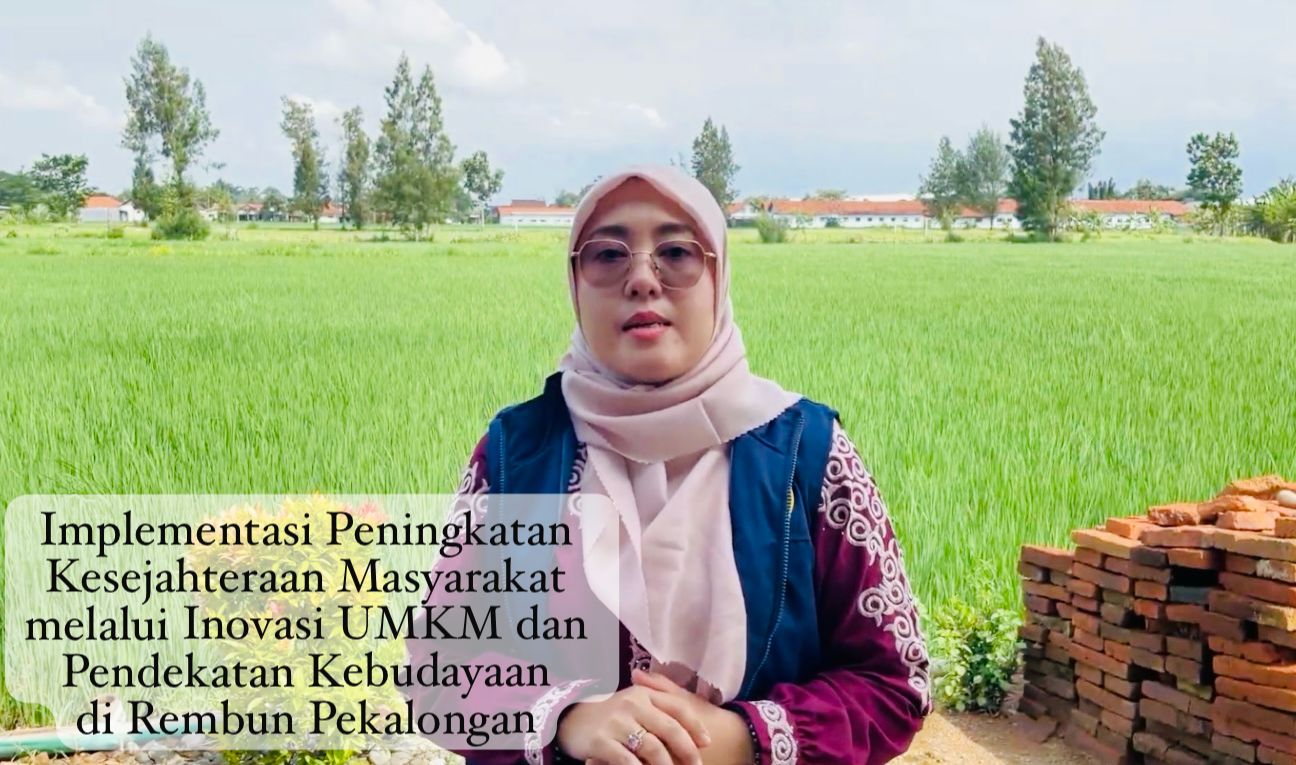Undip Faculty of Humanities Lecturer Enhances Rembun Community’s Welfare Through MSME Innovation and Cultural Development
Opinion by Riris Tiani, S.S., M.Hum. (tiani.riris25@gmail.com)
Lecturers from Diponegoro University (Undip) have carried out community service programs in Rembun Village, Siwalan District, Pekalongan Regency. This initiative aims to improve the welfare of local residents by developing Micro, Small, and Medium Enterprises (MSMEs) and optimizing local culture.
This community service project was led by Riris Tiani, S.S., M.Hum., a lecturer from the Indonesian Literature Program at the Faculty of Humanities (FIB) Undip, with full support from the Dean of FIB Undip, Prof. Dr. Alamsyah, M.Hum.
Background of the Community Service Program
As a higher education institution, Undip upholds the Tri Dharma of Higher Education: education, research, and community service. According to Law No. 20 of 2003 on the National Education System and Law No. 12 of 2012 on Higher Education, community service aims to apply scientific knowledge and technology to benefit society.
Referring to Undip’s Master Research Plan (RIP), this program focuses on poverty alleviation in coastal areas. Rembun Village, one of the oldest villages in Siwalan District, has great potential in MSMEs and local culture. However, this potential remains underutilized. Therefore, Undip’s community service team is helping Rembun residents maximize their local resources.
MSME Development and Food Security in Rembun
Rembun Village has a strong fishing industry, with many residents engaged in fish farming due to the impact of tidal floods from the Java Sea. However, nutritional standards—especially for children and the elderly are often overlooked. To address this, Undip’s team provided training on fish processing to improve food security and economic welfare.
Additionally, fish waste management is a key concern. Instead of being discarded, fish waste is now being processed into organic fertilizer and healthy fish-based food products. This initiative is part of social outcome innovation, aimed at creating socially beneficial solutions for the community.
Beyond product development, Undip’s team also trained locals in digital marketing. By utilizing online platforms, Rembun’s MSME products can reach wider markets, contributing to sustainable economic growth.

Preserving Local Culture as a Village Identity
From a cultural perspective, Rembun Village has rich geographical and anthropological history that remains largely undocumented. As one of the oldest villages in Siwalan District, Rembun possesses intangible local wisdom that must be preserved and passed on to future generations.
Undip’s community service team has undertaken several key initiatives to document and preserve Rembun’s cultural heritage, including:
- Compiling a cultural documentation book, now used by local government authorities.
- Visualizing Rembun’s folklore, which is now part of local school curricula.
- Digitizing Rembun’s mythology, making it accessible to a wider audience.
Through these efforts, Rembun’s cultural identity is strengthened, potentially attracting cultural tourism that boosts the local economy.
Positive Impact and Future Plans
Undip’s community service program has significantly transformed Rembun Village, benefiting both residents and local authorities. Once considered an underdeveloped area, Rembun is now evolving into a “maritime eco-village” in Central Java’s northern coastal region.
“We are not just conducting site visits—we are actively empowering the community to optimize their potential. Through social engagement and innovation, Rembun residents are now more economically and culturally empowered,” said Riris Tiani, S.S., M.Hum.
The Dean of FIB Undip, Prof. Dr. Alamsyah, M.Hum., also expressed his appreciation for the project:
“We strongly support this research and community service initiative. We hope the results will continue to benefit the local community and inspire similar programs in other regions of Indonesia.”
This initiative is a concrete example of how collaboration between academics, students, and the community can drive positive change. By combining MSME innovation and cultural revitalization, Rembun Village is becoming economically, socially, and culturally self-sufficient.
“Through community service, we bring benefits. Through community service, we build a better society.”
